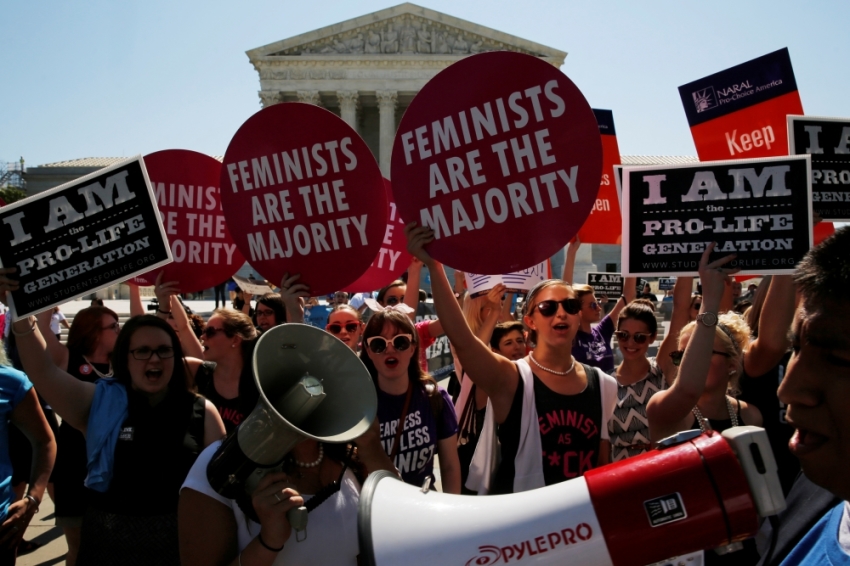Supreme Court lets Kentucky law requiring ultrasounds before abortions stand

The U.S. Supreme Court Monday rejected a case brought against a Kentucky law requiring mothers to view an ultrasound and listen to audio of their child’s heartbeat before going through with their abortions.
The nation’s high court offered no reasoning for its decision to let stand a Kentucky law that has been blocked by courts since it was enacted in 2017. But the court’s decision paves the way for the law to finally be enacted.
The law requires mothers to look at an ultrasound of their child while a doctor describes the ultrasound to the patient. Doctors are also required to play audio of the fetal heartbeat.
“We are encouraged by today’s Supreme Court decision that lets Kentucky’s pro-life ultrasound law stand,” Marjorie Dannenfelser, president of the national pro-life lobbying group Susan B. Anthony List, said in a statement. “Modern ultrasound technology opens an unprecedented window into the womb, providing indisputable evidence of the humanity of the unborn child.”
Abortion rights supporters chided the court’s decision. The law was challenged by Kentucky's only abortion clinic, EMW Women’s Clinic of Louisville, which was represented by the American Civil Liberties Union.
The ACLU contends that the court’s decision “allows extreme political interference in the doctor-patient relationship.” The ACLU claims that the law violates the First Amendment of the U.S. Constitution.
“Kentucky's law is just one example of the ways politicians punish and stigmatize people who have already decided to have an abortion,” the ACLU tweeted. “Abortion is a right — and it’s legal in all 50 states.”
The pro-abortion advocacy group NARAL argued that the law “shames women for accessing basic care.”
“Mandating transvaginal ultrasounds for women seeking abortion care is not only medically unnecessary — it’s violently invasive,” NARAL wrote in a tweet.
Proponents of the legislation argue that patients looking to abort have the right to “informed consent.”
"Women facing an unexpected pregnancy deserve to have as much medically and technically accurate information as possible when they are making what could be the most important decision of their life," March for Life President Jeanne Mancini said in a statement.
Dannenfelser contends that the “abortion industry has proven incapable of policing itself and will stop at nothing to keep vulnerable women in the dark for the sake of profit.”
Pro-life activist Lila Rose, the founder of Live Action, tweeted that many women “reject the violence of abortion” when they have the “chance to see the humanity of their child [and] hear their heartbeat.”
The court’s refusal to take up the case leaves in place a ruling by a three-judge bench of the Sixth U.S. Circuit Court of Appeals last April upholding the constitutionality of the Kentucky law.
The appeals court overturned a lower court ruling declaring the law to be unconstitutional. The opinion by the Sixth Circuit was written by Trump appointee John Bush.
Although the case sets no precedents, it does imply that the court’s conservative majority could be inclined to grant the ability to states to regulate the abortion industry.
In October, the Supreme Court agreed to take up a case against a Louisiana law requiring doctors who perform abortions to have admitting privileges at nearby hospitals. Critics say the law will leave only one authorized abortion clinic in the state.
“We hope the Court will render another just decision in the case of Louisiana’s law requiring reasonable standards to protect women’s health and safety,” Dannenfelser said.
Follow Samuel Smith on Twitter: @IamSamSmith
or Facebook: SamuelSmithCP



























